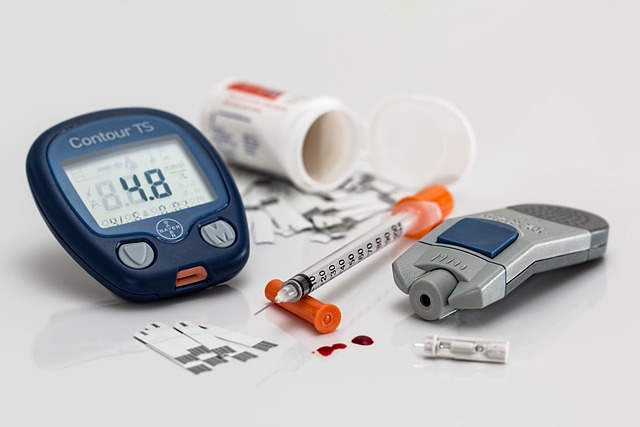Understanding Diabetes Management in the UK: Treatment Options, Lifestyle Adjustments, and Medical Support
Diabetes is a long-term health condition that affects how the body processes blood sugar. In the UK, there are a range of medically approved treatment options and support systems available. This article explores how individuals can manage their condition through medication, regular monitoring, and lifestyle changes. Whether newly diagnosed or managing diabetes for years, understanding your options can make a meaningful difference to daily life and long-term wellbeing.

What Are the Different Types of Diabetes and Their Treatments?
Diabetes is primarily categorized into three main types, each requiring distinct treatment approaches. Type 1 diabetes is an autoimmune condition where the body cannot produce insulin and accounts for about 8% of diabetes cases in the UK. Treatment invariably requires insulin therapy, delivered via injections or insulin pumps. People with Type 1 diabetes need insulin for life, and dosage must be carefully balanced with food intake and activity levels.
Type 2 diabetes, accounting for approximately 90% of cases, occurs when the body doesn’t produce enough insulin or cells become resistant to insulin’s effects. Treatment typically begins with lifestyle modifications, including diet changes and increased physical activity. If these measures prove insufficient, oral medications such as Metformin are usually prescribed as first-line treatment. As the condition progresses, additional medications or insulin therapy may become necessary.
Gestational diabetes occurs during pregnancy and usually resolves after childbirth. Management focuses on controlling blood glucose through diet, exercise, and sometimes insulin or oral medications. While temporary, gestational diabetes indicates a higher risk of developing Type 2 diabetes later in life, making ongoing monitoring important.
What Medication Options Are Available for Managing Blood Sugar?
The NHS offers a wide range of medications to help people manage their blood glucose levels. For Type 2 diabetes, treatment typically follows a stepped approach:
Metformin remains the first-line medication, working by reducing glucose production in the liver and improving insulin sensitivity. When metformin alone is insufficient, second-line treatments may include sulfonylureas (which stimulate insulin release), DPP-4 inhibitors (which prevent the breakdown of incretin hormones), SGLT2 inhibitors (which help the kidneys remove glucose through urine), or GLP-1 receptor agonists (which increase insulin secretion while reducing appetite).
For more advanced cases, insulin therapy becomes necessary, available in various forms including rapid-acting, long-acting, and mixed insulins. The specific regimen depends on individual needs, lifestyle factors, and how well the body responds to treatment.
Newer medications like GLP-1 receptor agonists (such as semaglutide) have gained attention for their effectiveness in not only managing blood glucose but also supporting weight loss, which can be beneficial for many people with Type 2 diabetes.
How Can Lifestyle Habits Support Effective Diabetes Care?
Lifestyle modifications form the cornerstone of diabetes management regardless of the type. Nutrition plays a crucial role, with the NHS recommending a balanced diet rich in vegetables, fruits, whole grains, and lean proteins while limiting refined carbohydrates, processed foods, and added sugars. The NHS Diabetes Prevention Programme offers structured education on making sustainable dietary changes.
Regular physical activity improves insulin sensitivity and helps maintain healthy weight. The recommendation for adults is at least 150 minutes of moderate-intensity activity weekly, spread across multiple days. This might include brisk walking, swimming, cycling, or specific exercise programs designed for people with diabetes.
Stress management and adequate sleep are often overlooked but essential components of diabetes care. Stress hormones can raise blood glucose levels, while poor sleep disrupts metabolism and can worsen insulin resistance. Mindfulness practices, adequate rest, and maintaining social connections all contribute to better diabetes outcomes.
Additionally, avoiding smoking and limiting alcohol consumption are important lifestyle factors that can significantly impact diabetes management and reduce the risk of complications.
What Are the Best Ways to Monitor and Track Glucose Levels?
Blood glucose monitoring technology has advanced significantly, offering multiple options for people with diabetes in the UK. Traditional finger-prick testing remains common, where blood samples are placed on test strips and read by a glucometer. The NHS provides these supplies free of charge to insulin users and some people with Type 2 diabetes.
Continuous glucose monitoring (CGM) systems use a small sensor inserted under the skin to measure glucose levels continuously, sending readings to a receiver or smartphone. Flash glucose monitoring, like the FreeStyle Libre system, allows users to scan a sensor with a reader or smartphone to see current readings and trends. The NHS has expanded access to these technologies, particularly for people with Type 1 diabetes or complex Type 2 diabetes.
Time in range (TIR) has emerged as an important metric, focusing on how much time a person spends within their target glucose range rather than just isolated readings. Technological advancements now allow integration between monitoring devices and insulin delivery systems, moving toward “closed-loop” or artificial pancreas systems for some patients.
What Support Services Are Available for Diabetes Patients in the UK?
The NHS provides comprehensive support services for people with diabetes. DESMOND (Diabetes Education and Self-Management for Ongoing and Newly Diagnosed) and DAFNE (Dose Adjustment For Normal Eating) are structured education programs offered to help individuals understand and manage their condition effectively.
Diabetes specialist nurses play a pivotal role in providing personalized support, education, and medication management. Regular check-ups include the annual diabetes review, which encompasses foot examinations, eye screening, kidney function tests, and cardiovascular risk assessment to detect and prevent complications early.
Community support extends beyond clinical settings through organizations like Diabetes UK, which offers helplines, local support groups, and online forums. These resources provide both practical advice and emotional support, acknowledging that the psychological impact of managing a chronic condition can be significant.
Digital support has expanded significantly, with apps like the NHS-endorsed MyDiabetes app helping users track blood glucose levels, medication, physical activity, and dietary intake. Telehealth consultations have also become more widely available, particularly useful for those in rural areas or with mobility challenges.
How Does the Cost of Diabetes Management Impact Patients in the UK?
While the NHS provides most diabetes care free at the point of use, there are associated costs that patients should consider. Prescription charges in England (currently £9.90 per item) apply unless individuals qualify for exemptions, although many people with diabetes are exempt. Scotland, Wales, and Northern Ireland have abolished prescription charges entirely.
Some specialized equipment may have limited NHS availability based on regional funding decisions, potentially creating “postcode lotteries” for certain treatments like insulin pumps or continuous glucose monitors.
| Aspect of Diabetes Care | NHS Coverage | Potential Additional Costs |
|---|---|---|
| Insulin and Medications | Fully covered (with prescription charge in England unless exempt) | Over-the-counter supportive medications |
| Blood Glucose Monitors | Basic monitors and test strips provided | Premium models or additional testing supplies |
| CGM/Flash Monitoring | Available for Type 1 and some Type 2 patients based on criteria | Private purchase if not meeting NHS criteria (~£50-£100 monthly) |
| Structured Education | Free courses like DESMOND and DAFNE | Private nutrition consultation (£40-£100 per session) |
| Specialist Footwear | Available through NHS if clinically necessary | Prevention footwear (£30-£100) |
| Dietary Products | Not typically covered | Diabetes-specific food products |
Prices, rates, or cost estimates mentioned in this article are based on the latest available information but may change over time. Independent research is advised before making financial decisions.
Living with diabetes requires a multifaceted approach combining medication, lifestyle adjustments, regular monitoring, and appropriate medical support. The UK healthcare system offers robust resources for diabetes management, though navigating the available options can initially seem overwhelming. By understanding the treatment pathways, monitoring technologies, and support services available, individuals with diabetes can work effectively with healthcare professionals to maintain optimal health and reduce the risk of complications. The emphasis on self-management education reflects the importance of empowering people with diabetes to take control of their condition while knowing when and how to access professional support.
This article is for informational purposes only and should not be considered medical advice. Please consult a qualified healthcare professional for personalized guidance and treatment.




